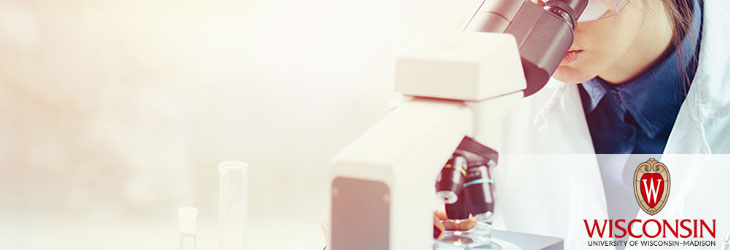Analytical Instrumentation, Methods & Materials

Bioreversible Protein Esterification
WARF: P130148US02
Inventors: Ronald Raines, Nicholas McGrath
The Wisconsin Alumni Research Foundation (WARF) is seeking commercial partners interested in developing a high-yielding, catalyst-free method to esterify proteins using certain diazo compounds.
Overview
Proteins contain carboxyl groups. These charged groups make it difficult for any protein to enter a human (or other eukaryotic) cell. Modifying proteins to enter cells could revolutionize medicine, e.g., by helping antibodies reach intracellular targets or by replacing damaged proteins.
One way to modify proteins is to convert their carboxyl groups into esters. Existing esterification methods are inefficient in water. A new method is needed that is high-yielding and ‘bioreversible,’ meaning the protein reverts to its original form once it successfully enters the cell.
One way to modify proteins is to convert their carboxyl groups into esters. Existing esterification methods are inefficient in water. A new method is needed that is high-yielding and ‘bioreversible,’ meaning the protein reverts to its original form once it successfully enters the cell.
The Invention
UW–Madison researchers have developed an efficient new method for esterifying proteins using certain diazo compounds. The compounds convert protein carboxyl groups into esters in buffered water. The modification is removed by enzymes that reside in all human cells, making the method bioreversible.
Diazo compounds have the general formula R2C=N2, but not all are effective. They must have a basicity within a certain range.
Diazo compounds have the general formula R2C=N2, but not all are effective. They must have a basicity within a certain range.
Applications
- Esterification of proteins and peptides
- Cell transfection
Key Benefits
- Bioreversible
- Highly selective
- Efficient and high yielding
- Catalyst free
- Works in water
Stage of Development
Using their new method the researchers have ‘decorated’ and ‘undecorated’ two proteins – ribonuclease A and the red fluorescent protein (RFP).
Additional Information
Related Technologies
For current licensing status, please contact Jennifer Gottwald at [javascript protected email address] or 608-960-9854